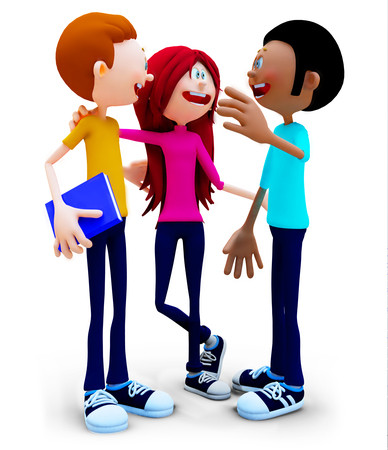Students who regularly talk about their reading have higher average reading scores.
Social interaction around reading is one of the keys to an effective reading program. In fact, the Nation’s Report Card (2000) reported that students who regularly talk with others about their reading have higher average reading scores than students who rarely talk about reading. Why not allow a few minutes at the end of each Independent Reading period for students to talk with a partner? It can make a big difference to their interest, motivation and even comprehension.
Unfortunately, too many students simply don’t know how to respond to reading beyond “I liked it” or “it was boring.” And struggling readers, in particular, are often reluctant to share their ideas for fear of looking “dumb”. We might need to teach students the language they need for responding to reading, both orally and in writing. Take time to teach your students the vocabulary they need, a few words at a time. Model the use of the vocabulary words as you think-aloud your own reading responses to a shared reading, then encourage students to experiment with these words as they talk to a partner.
WORDS THAT MAKE YOU SOUND SMART
WHEN YOU TALK ABOUT READING
“Realistic” or “Improbable” situations
“Suspenseful” or “Predictable” plots
“Authentic” or “Unrealistic” characters
“Powerful” or “Weak” message
“Descriptive” or “Mundane” words
“Fast-moving” or “Plodding” storyline
“Interesting” or “Bland” descriptions
“Elaborate” or “Sketchy” ideas
“Gripping” or “Tedious” story
“Exciting” or “Ridiculous” ending
Adapted from When Kids Can’t Read (2003) by Kylene Beers


